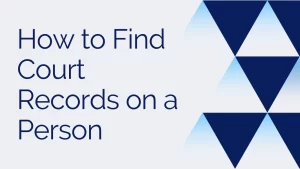Can You Get a Public Defender for Family Court?
Family court handles sensitive cases like divorce, child custody, and domestic violence that deal with important issues affecting peoples’ lives. Having an experienced family law attorney can make navigating this complex system much easier. However, lawyers are expensive and many people go through family court without representation because they can’t afford it. This raises the question – can you get a free public defender for family court?
The short answer is sometimes, but not always. Public defenders are provided free of charge to criminal defendants who can’t afford a lawyer. However, the right to a free attorney does not extend to most civil cases, including many family court matters. There are some circumstances when a public defender may be appointed in family court, but approval depends on your income and the specific type of case.
Who Qualifies for a Public Defender in Family Court?
The income requirements to get a public defender vary by state. Generally, you must show that hiring a private lawyer would cause “substantial hardship” based on your overall financial situation. The judge considers your income, assets, expenses, and the cost of retaining an attorney. The income cutoff is often 125-150% of the federal poverty guidelines.
For example, in Florida the limit is $15,616 for an individual or $31,821 for a family of four. In California, you could qualify if your take home pay is less than $1,600 per month. The limits tend to be higher in states with a higher cost of living.
Assets are also considered, such as money in savings/checking accounts, cars, real estate equity, and investments. The asset limits range from $2,500 to $10,000 for a single person. If your assets exceed the threshold, you will not qualify for a public defender.
The judge may also look at expenses like child care, medical bills, child support owed, and other debts and liabilities. They determine if paying typical legal fees would force you below a reasonable subsistence level.
Types of Cases Where You Can Get a Public Defender
Public defenders are most commonly appointed in family court for:
- Child custody disputes, especially when custody is contested or DCFS is involved
- Divorce proceedings, if domestic violence is a factor
- Child support matters, if incarceration for non-payment is threatened
- Domestic violence/restraining order cases
- Termination of parental rights initiated by the state
- Juvenile delinquency defense for minors
It is rare to get a public defender for an uncontested, no-fault divorce, simple paternity case, or basic child support establishment matter if both parties are cooperative.
Applying for a Public Defender
To request a public defender, you will need to fill out a financial affidavit form available at the court clerk’s office or online. This requires documentation of your income, assets/property, expenses, and liabilities. Paystubs, tax returns, bank statements, and bills are needed to complete it.
Most courts will have you come in for an eligibility interview. You will go over the affidavit with a screener to ensure accuracy. They may ask for additional verification and will evaluate if you are above the financial threshold.
If approved, the judge will sign an order appointing legal counsel at the first court appearance. You may be assigned a public defender from the office or the judge can appoint a private bar attorney to take the case pro bono. If denied, the judge will outline available options, like legal aid groups, law school clinics, or filing appeals.
Benefits of Having a Public Defender
Having a public defender has several advantages over self-representation:
Saves money on legal fees. Public defenders work for a government agency or nonprofit. Their services are 100% free for qualified applicants. Hiring a private attorney can cost thousands of dollars in upfront retainers and hourly fees.
Get experienced counsel. Public defenders specialize in criminal and family law. They handle a high volume of cases regularly. An experienced public defender has likely worked cases similar to yours before.
Levels the playing field. Having skilled legal counsel ensures you understand the law and court procedures. This prevents the other party from taking advantage if they have an aggressive lawyer.
Limitations of Public Defenders
While public defenders provide competent legal services, there are some drawbacks:
High caseloads. Public defenders handle a lot of cases at once with limited resources. They typically only spend a few hours per case compared to a private lawyer.
Less time per case. Busy schedules mean your public defender may seem rushed in meetings and not have capacity for extras like phone calls or extra research.
May lack expertise in family law. Some offices assign attorneys randomly regardless of specialty. You could end up with a great criminal lawyer unfamiliar with custody battles.
Alternatives if You Don’t Qualify
If you don’t meet the financial requirements for a public defender, some options include:
Legal aid organizations. Every state has legal aid societies and nonprofits to assist low-income residents with family law needs. They have income limits as well but are often higher than public defender cutoffs.
Law school clinics. Many law schools provide supervision for students to gain experience working on family law cases. Services are free or low cost based on ability to pay.
Limited scope representation. You can retain an attorney just for certain services, like document review or court coaching. Hourly rates are more affordable than full representation.
DIY/self-representation. Without an attorney you must research the law, prepare forms, and represent yourself in court. Family courts have self-help resources to assist.
Steps to Take Before Your Hearing
To effectively work with a public defender (or go pro se), you should come prepared. Key steps include:
- Gather documents. Obtain anything related to your case like prior orders, police reports, financial records, evidence of assets, and correspondence. This helps your attorney and speeds up fact finding.
- Make a timeline. Reconstruct relevant events in sequential order with descriptions and dates. This jogs your memory for details that may help your case.
- List witnesses. Make a list of anyone who may have firsthand knowledge to support your position. Also include their contact info and briefly note their potential testimony.
- Know the law and process. Read up on applicable statutes, case law, and court procedures so you understand the standards and burden of proof. Your attorney will explain but self-education is helpful.
What to Expect in Court With a Public Defender
If approved for a public defender, here are some things to expect at various stages:
Initial hearings – At your first appearance they will file notices, schedule conferences, and handle any emergency motions needed. Basic arguments may be presented if the other party is seeking immediate relief from the court.
Settlement conferences – Your attorney will negotiate with the opposing counsel and update you on any offers. They will counsel you on proposals and help decide if settlement looks beneficial.
Trial preparation – You will meet to discuss evidence gathering, potential witnesses, testimony preparation, and trial strategy. Your public defender will file motions and draft arguments to support your position.
The trial/final hearings – Your attorney will argue your case and cross-examine witnesses. They will introduce evidence and make objections as needed. Before a judge ruling, they can file motions or briefs to influence the decision.
Conclusion
Getting a public defender for family court depends on your financial situation and the specifics of the case. For low income people, it offers affordable legal representation during often stressful proceedings. Public defenders have expertise that can help navigate the complicated family court system. However, high caseloads also put limits on their time and services compared to private counsel. Understanding eligibility, benefits, limitations, and what to expect can help you make an informed choice about legal representation for your family law needs.
FAQs
What is the income limit to get a public defender for family court?
The income limit varies by state, but is often 125-150% of federal poverty guidelines. Total assets are also considered, with thresholds around $2,500 to $10,000. Judges look at the full financial picture including income, expenses, debts, and the cost of a private attorney.
Can I get a public defender for child custody or child support cases?
Yes, public defenders are sometimes appointed for contested custody matters, establishment of child support when jail time is threatened, and cases involving child protective services. Uncontested or straightforward cases less often qualify.
Should I hire a private attorney over using a public defender?
It depends on your financial situation. Private lawyers have more time to dedicate to your case. But if you can’t afford typical legal fees, a competent public defender is far better than going without representation.
What expenses do courts look at when evaluating eligibility?
Judges consider monthly expenses like rent/mortgage, utilities, food, child care, transportation, medical costs, and other basic necessities. Debt payments and child support obligations are also included. The goal is assessing disposable income.
If I’m denied a public defender, what are my options for legal help?
Alternatives include legal aid organizations, law school clinics, limited scope representation from private attorneys, and self-representation. Many courts have self-help resources like guides and classes for people going pro se.







